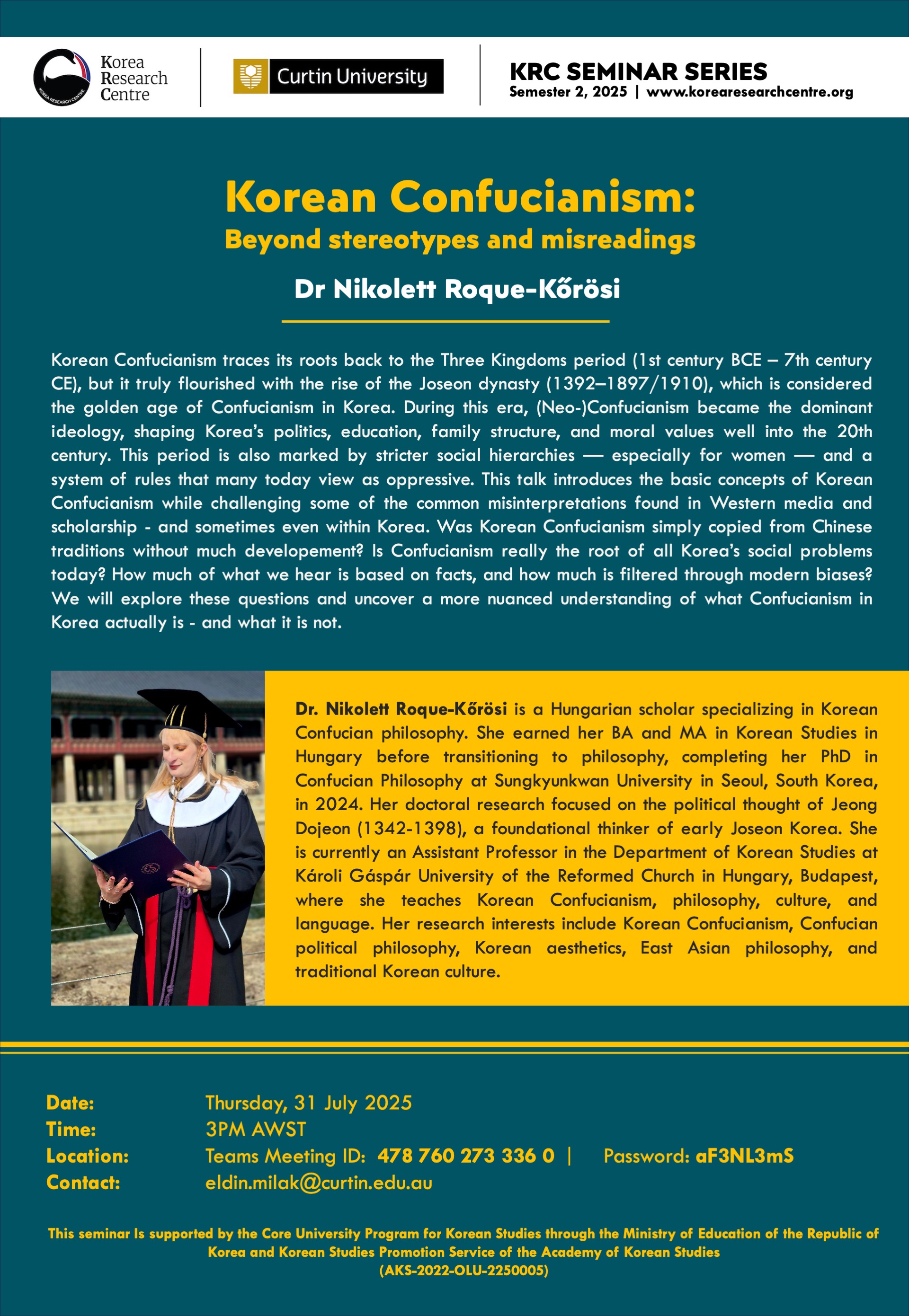time zone will be applied.
Report this post?

Abstract: Korean Confucianism traces its roots back to the Three Kingdoms period (1st century BCE – 7th century CE), but it truly flourished with the rise of the Joseon dynasty (1392–1897/1910), which is considered the golden age of Confucianism in Korea. During this era, (Neo-)Confucianism became the dominant ideology, shaping Korea’s politics, education, family structure, and moral values well into the 20th century. This period is also marked by stricter social hierarchies — especially for women — and a system of rules that many today view as oppressive. This talk introduces the basic concepts of Korean Confucianism while challenging some of the common misinterpretations found in Western media and scholarship - and sometimes even within Korea. Was Korean Confucianism simply copied from Chinese traditions without much developement? Is Confucianism really the root of all Korea’s social problems today? How much of what we hear is based on facts, and how much is filtered through modern biases? We will explore these questions and uncover a more nuanced understanding of what Confucianism in Korea actually is - and what it is not.
Speaker bio: Dr. Nikolett Roque-Kőrösi is a Hungarian scholar specializing in Korean Confucian philosophy. She earned her BA and MA in Korean Studies in Hungary before transitioning to philosophy, completing her PhD in Confucian Philosophy at Sungkyunkwan University in Seoul, South Korea, in 2024. Her doctoral research focused on the political thought of Jeong Dojeon (1342-1398), a foundational thinker of early Joseon Korea. She is currently an Assistant Professor in the Department of Korean Studies at Károli Gáspár University of the Reformed Church in Hungary, Budapest, where she teaches Korean Confucianism, philosophy, culture, and language. Her research interests include Korean Confucianism, Confucian political philosophy, Korean aesthetics, East Asian philosophy, and traditional Korean culture.
Teams Meeting ID: 478 760 273 336 0 | Password: aF3NL3mS
This seminar Is supported by the Core University Program for Korean Studies through the Ministry of Education of the Republic of Korea and Korean Studies Promotion Service of the Academy of Korean Studies (AKS-2022-OLU-2250005).